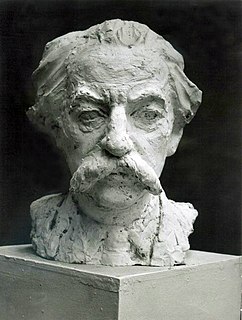A Quote by Roland Barthes
...what I enjoy in a narrative is not directly its content or even its structure, but rather the abrasions I impose upon the fine surface: I read on, I skip, I look up, I dip in again. Which has nothing to do with the deep laceration the text of bliss inflicts upon language itself, and not upon the simple temporality of its reading.
Related Quotes
The discourse on the Text should itself be nothing other than text, research, textual activity, since the Text is that social space which leaves no language safe, outside, nor any subject of the enunciation in position as judge, master, analyst, confessor, decoder. The theory of the Text can coincide only with a practice of writing.
The challenge is simple: Quitting when you hit the Dip is a bad idea. If the journey you started was worth doing, then quitting when you hit the Dip just wastes the time you’ve already invested. Quit in the Dip often enough and you’ll find yourself becoming a serial quitter, starting many things but accomplishing little. Simple: If you can’t make it through the Dip, don’t start. If you can embrace that simple rule, you’ll be a lot choosier about which journeys you start.
It is my mind, with its store of images, that gives the world color and sound; and that supremely real and rational certainty which I can "experience" is, in its most simple form, an exceedingly complicated structure of mental images. Thus there is, in a certain sense, nothing that is directly experienced except the mind itself. Everything is mediated through the mind, translated, filtered, allegorized, twisted, even falsified by it. We are . . . enveloped in a cloud of changing and endlessly shifting images.
It is my mind, with its store of images, that gives the world colour and sound; and that supremely real and rational certainty which I call "experience" is, in its most simple form, an exceedingly complicated structure of mental images. Thus there is, in a certain sense, nothing that is directly experienced except the mind itself. Everything is mediated through the mind.
We must be forewarned that only rarely does a text easily lend itself to the reader's curiosity... the reading of a text is a transaction between the reader and the text, which mediates the encounter between the reader and writer. It is a composition between the reader and the writer in which the reader "rewrites" the text making a determined effort not to betray the author's spirit.
There's no linear narrative - the structure is more like a series of variations on a theme (how identity is shaped by language), with the past constantly bleeding into the present, dreams into reality. And the language, while incredibly lyrical in places, also has this underlying dissonance, the sense of it having itself been translated.
When you are in deep meditation you don't feel meditation, you feel bliss. When you are deep in meditation, when you are deep in awareness, you don't feel awareness, you feel bliss. When you begin to feel bliss, that means now you have begun to be aware. Awareness creates the situation in which bliss is felt.
This journey then, is nothing more, yet nothing less than a period of acclimating to a new way of seeing, a time of transition and revelation as it gradually comes upon "that" which remains when there is no self. this is not a journey for those who expect love and bliss, rather, it is for the hardy who have been tried by fire and have come to rest in a tough, immovable trust in "that" which lies beyond the known, beyond the self, beyond union and even beyond love and trust itself

































